Keynote Speakers
- Large Language Models - Risks and Benefits
- Decision-making in the Partially Observable World
- AI and the Future of Work - How Enterprises, Managers, Workers, and Unions can Shape it
- The Dawn of AI Engineering: The Emergent Discipline Bridging Data, Code, and Advanced AI Models
- The Next Phase of Science Discovery - Cognitive Automation
- Current Research and Innovation on Artificial Intelligence and Its Collaboration Opportunities in BRIN
Keynote #1: Large Language Models - Risks and Benefits
Overview:
Large Language Models have made extraordinary advances in recent times. ChatGPT is one of the fastest growing apps of all time, with over 100 million users. On the back of its spectacular success, many voices have been forecasting doomsday outcomes whereby AI systems may subjugate humanity. This talk will give a high level overview of Large Language Models and present my thoughts on the potential benefits and likely risks of AI and what we should be doing about them.
Presenter: Professor Geoff Webb, Monash University, Australia
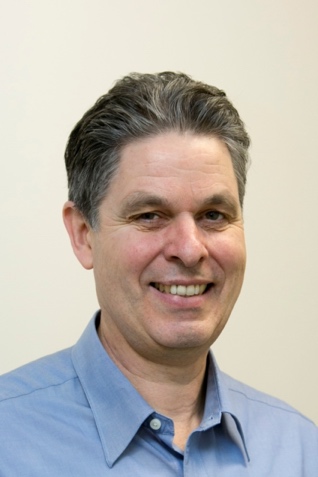
Professor Geoff Webb is an eminent and highly-cited data scientist. He was editor in chief of the Data Mining and Knowledge Discovery journal, from 2005 to 2014. He has been Program Committee Chair of both ACM SIGKDD and IEEE ICDM, as well as General Chair of ICDM and member of the ACM SIGKDD Executive. He is a Technical Advisor to machine learning as a service startup BigML Inc and to recommender systems startup FROOMLE. He developed many of the key mechanisms of support-confidence association discovery in the 1980s. His OPUS search algorithm remains the state-of-the-art in rule search. He pioneered multiple research areas as diverse as black-box user modelling, interactive data analytics and statistically-sound pattern discovery. He has developed many useful machine learning algorithms that are widely deployed. His many awards include IEEE Fellow, the inaugural Eureka Prize for Excellence in Data Science (2017) and the Pacific-Asia Conference on Knowledge Discovery and Data Mining Distinguished Research Contributions Award (2022).
Keynote #2: Decision-making in the Partially Observable World
Overview:
Despite the rise of self-driving cars and drones, an autonomous system that can operate reliably outside a carefully structured factory floor is rare. The main reason is uncertainty. A robot must decide what it should do now to accomplish its tasks, despite not knowing the exact effect of its actions, errors in sensors and sensing, and the lack of information and understanding about itself and its environment. However, the technology for making good decisions in the presence of uncertainty is still lacking. In this talk, I will present some of our recent work in developing such technology, specifically in our work on enabling the Partially Observable Markov Decision Processes —the general and principled framework for decision-making under uncertainty— to become practical.
Presenter: Professor Hanna Kurniawati, Australian National University, Australia
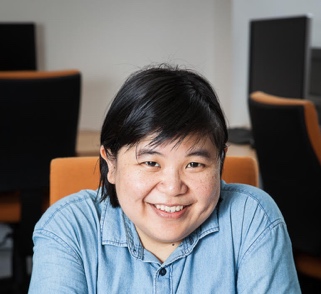
Hanna Kurniawati is a Professor in the School of Computing at the Australian National University (ANU) and holds the SmartSat CRC Chair for System Autonomy, Intelligence & Decision-Making. Hanna’s research span robotics, planning under uncertainty, motion planning, computational geometry applications, integrated planning and learning, and reinforcement learning. Together with students and collaborators, she has developed computational methods that enable the Partially Observable Markov Decision Processes (POMDPs) to become practical for robotics. Her work have received multiple recognitions, including a best paper award at ICAPS 2015, a finalist for the best paper award at ICRA 2015, ACS Gold Award for ICT Researcher of the year 2015, a keynote talk at IROS 2018, and the Robotics: Science and Systems 2021 Test of Time Award.
Keynote #3: AI and the Future of Work - How Enterprises, Managers, Workers, and Unions can Shape it
Overview:
The effect of advancing AI will be determined by who participates in the key decisions that shape it. To maximize opportunities to have positive effects on work and to mitigate its negative effects, managers, workers and their representatives need to have a voice in each critical stage of the technology development and implantation process by: (1) helping to define the problem(s) AI and related technologies are asked to address; (2) co-designing technologies and changes in work systems to augment how people do their jobs, (3) provide advance training of the managers and workforce on how to use new technologies, and; (4) renegotiating compensation and adjustment policies for managers and workers affected by or displaced by new technologies. In this talk I discuss ways to strengthen workers’ voices in each of these stages of AI development and implementation.
Presenter: Professor Thomas Anton Kochan, Massachusetts Institute of Technology, USA

Thomas A. Kochan is the George Maverick Bunker Professor Emeritus at the MIT Sloan School of Management and a faculty member of Work and Employment Research and a co-founder of the Worker Empowerment Research Network. His recent work calls attention to the need for a new social contract at work, one that anticipates and engages current and future technological changes in ways that can drive innovation and build a more inclusive economy and broadly shared prosperity. His most recent book is Shaping the Future of Work: A Handbook for Action and a New Social Contract (Routledge, 2021). He is a member of the National Academy of Human Resources and the National Academy of Arbitrators. He is a past president of the International Industrial Relations Association and the Industrial Relations Research Association. From 2018-2020 he served as a member of the MIT Task Force on Work of the Future. Kochan received his PhD in industrial relations from the University of Wisconsin.
Keynote #4: The Dawn of AI Engineering: The Emergent Discipline Bridging Data, Code, and Advanced AI Models
Overview:
The swift advancements in Generative AI, coupled with the rapid adoption of big data, data science, and traditional AI, have catalyzed the rise of AI Engineering. This emerging discipline serves as a holistic synthesis of data engineering, software engineering, and the data science life cycle. This talk will explore how AI Engineering is uniquely equipped to tackle the complexities of deploying advanced AI technologies. It harmonizes the intricate interplay among data, AI/ML models, and code, thereby streamlining the development, deployment, and maintenance of AI systems. The discipline also highlights the need for a new skill set, including roles such as ML Engineers, data scientists, data engineers, MLOps specialists, LLMOps specialists, and prompt engineers.
In the realm of generative AI, AI Engineering addresses several challenges, including the choice between proprietary and open-source models, as well as the nuances of various types of model adaptation and evaluation. These considerations are crucial for ensuring that deployed models are not only effective but also aligned with the specific needs, constraints, and values of the users of the application. The discipline further emphasizes continuous learning and continuous model monitoring, in addition to traditional CI/CD, to maintain system robustness.
AI Engineering also delves into the softer aspects of building human-centered and responsible AI systems, tackling issues such as bias, fairness, safety, security, explainability, interpretability, and accountability. The talk will illuminate how academic institutions are evolving to meet the growing demand for these specialized skills, providing a comprehensive view of both the practical and academic landscapes of this transformative discipline.
Presenter: Professor Anand Rao, Carnegie Mellon University, USA
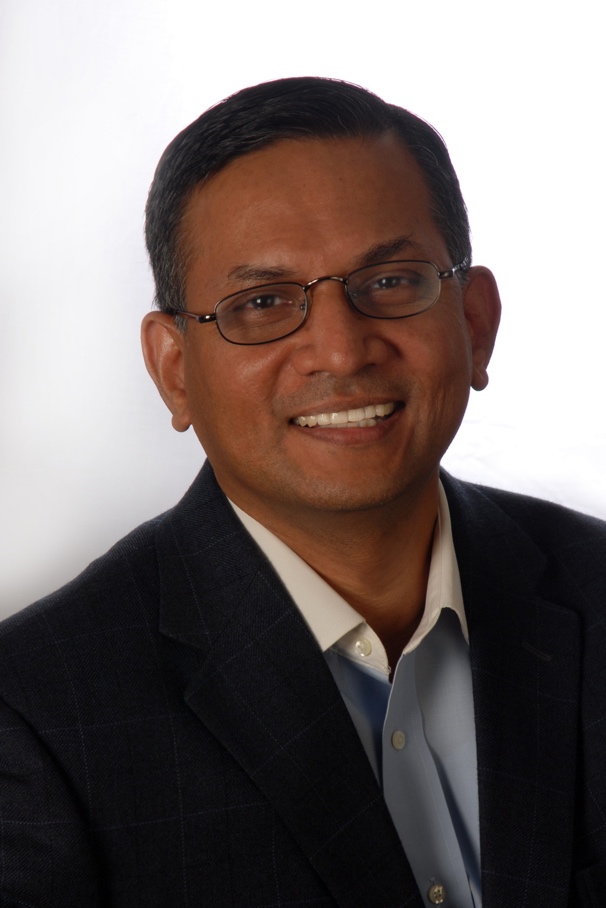
Dr. Anand S. Rao is a Distinguished Service Professor at Carnegie Mellon University and an adjunct faculty of the Block Center for Technology and Society researching and teaching AI engineering and responsible AI. He is also a Venture Partner at Golden Sparrow and is an advisor for a few AI start-ups. Prior to joining CMU, Dr. Rao was the Global Artificial Intelligence Leader for PwC an led their AI pillar within the Innovation Hub, Products & Technology segment. With over 35 years of industry and consulting experience, Anand led a team of practitioners who advised C-level executives and implemented advanced analytics and AI-based solutions on a variety of strategic, operational, and ethical use cases. With his PhD and research career in Artificial Intelligence and his subsequent experience in management consulting he brings business domain knowledge, software engineering expertise, and statistical expertise to generate unique insights into the practice of AI engineering.
Prior to joining management consulting, Anand was the Chief Research Scientist at the Australian Artificial Intelligence Institute. He received his PhD from University of Sydney (with a University Postgraduate Research Award-UPRA) in 1988 and an MBA (with Award of Distinction) from Melbourne Business School in 1997. Anand has also co-edited four books on Intelligent Agents, has published over fifty papers in Computer Science and Artificial Intelligence in major journals, conferences, and workshops, and over eighty papers and articles in the business press.
Keynote #5: The Next Phase of Science Discovery - Cognitive Automation
Overview:
Artificial Intelligence (AI) is the simulation of human intelligence in machines that are programmed to think and act like humans. AI is a field that makes computers behave like humans and make decisions on their own. It involves machine learning and natural language processing, and uses advanced hardware and software along with high-level programming languages. AI is continuously evolving to benefit many different industries, and machines are wired using a cross-disciplinary approach based on mathematics, computer science, linguistics, psychology, and more. In the field of science, AI has the potential to revolutionize research and discovery. It can help scientists analyze large amounts of data, simulate complex systems, and develop new materials and drugs. AI can also help scientists make predictions and identify patterns that would be difficult or impossible for humans to detect. In this talk, Prof Simon See will review some of the state of the art AI techniques and how they being applied to Science Discovery and simulation.
Presenter: Professor Simon See, Global Head of NVIDIA AI Technology Centre, Singapore
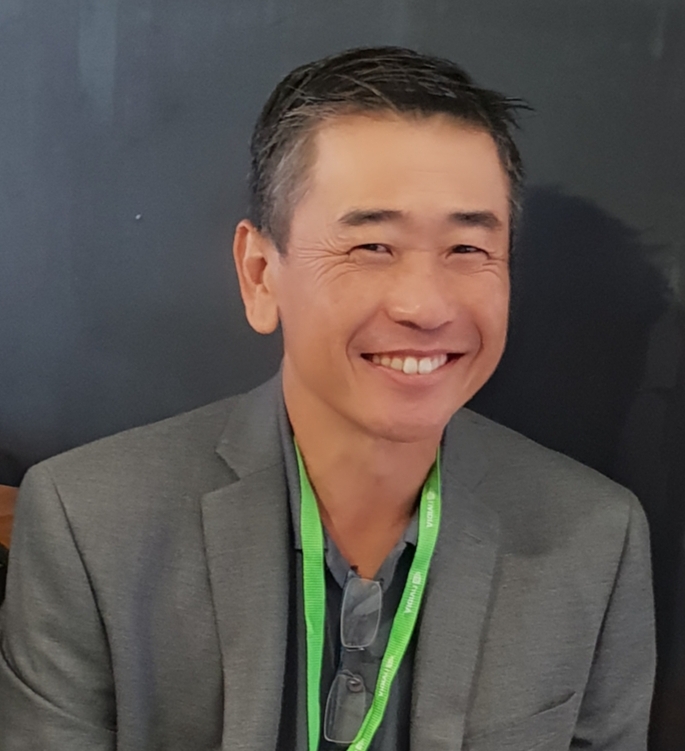
Prof Simon See is currently the Global Head of NVIDIA AI Technology Centre and also the Chief Solution Architecture and Senior Engineering Director of NVIDIA. He is also a Professor in Shanghai Jiao Tong University, Beijing University of Posts and Telecommunications (BUPT), and Universitas Indonesia (UI). He is being conferred as a Distinguished Fudan Scholar in September 2018 by Fudan University, Shanghai, China. Previously Prof. See is also the Chief Scientific Computing Advisor for BGI (China) and has a position in Nanyang Technological University (Singapore) and King-Mong Kung University of Technology (Thailand). Prof See is currently involved in a number of International computational, mathematical science projects and national AI initiatives. Prof See has been appointed as the Executive Director of the ASEAN Applied Research Centre (AARC). He is a Steering Committee member of NSCC’s flagship High Performance Computing Conference Supercomputing Asia (SCA) since March 2018. His research interests are in the area of High-Performance Computing, Big Data, Artificial Intelligence, machine learning, computational science, Applied Mathematics and simulation methodology. Prof See is also leading some of the AI initiatives in Asia Pacific. He has published over 200 papers in these areas and has won numerous awards in the field.
Keynote #6: Current Research and Innovation on Artificial Intelligence and Its Collaboration Opportunities in BRIN
Overview:
Artificial intelligence research at the National Research and Innovation Agency (BRIN) is conducted in two program houses, namely Autonomous Systems for Electric Vehicle and Artificial Intelligence Big Data and Computational Technology for Biodiversity and Satellite Imagery. These two program houses are hosted by the Research Organization for Electronics and Informatics, which is one of the 12 Research Organizations at BRIN. Research activities at the program house are open and can also involve researchers from universities and industry as collaborating partners. Mastery of key technologies for autonomous systems such as object detection using cameras, LIDAR, and Radar; CV2X information and telecommunications systems; vehicle sensors and computer vision; human vehicle interaction; are some of the research topics in the autonomous systems research program. Moreover, the Artificial Intelligence Big Data and Computational Technology for Biodiversity and Satellite Imagery research program focuses on efforts to utilize Indonesia's biodiversity and also satellite image data which can be used for various purposes by stakeholders. Several research facilitation programs such as open platforms for the use of research infrastructure, research funding schemes, and also facilitation for product certification, as well as researcher mobility both inbound and outbound, are some of the efforts to improve the research and innovation ecosystem in Indonesia.
Presenter: Budi Prawara, Chairman of Research Organization for Electronics and Informatics, National Research and Innovation Agency (BRIN), Indonesia
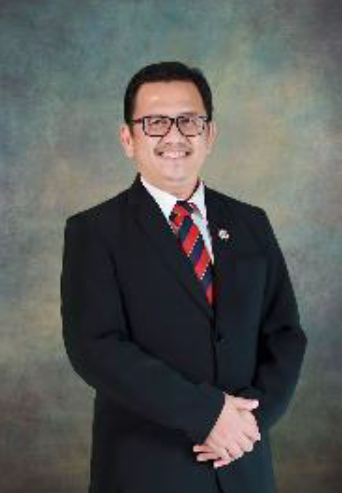
Dr. Budi Prawara is an expert on material engineering and researcher in the area of electronics at the National Research and Innovation Agency (BRIN). He obtained his PhD and Master’s degree from the University of Ryukyus, Japan on material engineering. Currently, he chairs the Research Organization for Electronics and Informatics at BRIN.
